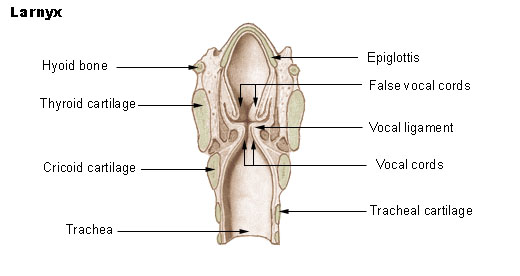Origin of language
|Illu larynx|thumb|left]]|thumb|left]]
Origin of Language
The origin of language refers to the inception and development of language, a system of communication that is a defining characteristic of the human species. Despite extensive research, the precise details of how and when language first emerged remain speculative, with theories ranging from the sudden appearance of language to gradual evolution.
Prehistoric Evidence[edit | edit source]
The prehistoric evidence for the origin of language is inherently indirect, as spoken languages leave no fossil records. Researchers rely on archaeological findings, such as the development of tools, cave paintings, and the anatomical changes in early humans, to infer the emergence of language capabilities. The Neanderthal hyoid bone, for example, suggests the possibility of speech, although its exact usage remains debated.
Theoretical Perspectives[edit | edit source]
Several theories have been proposed to explain the origin of language, each emphasizing different aspects of human evolution and culture.
Evolutionary Theories[edit | edit source]
Evolutionary theories suggest that language developed as humans evolved from earlier hominids. The Broca's area and Wernicke's area in the brain, responsible for language processing, are often cited as evidence of an evolutionary basis for language. Theories such as the "tool-use model" propose that the cognitive demands of tool-making and use led to the development of language.
Social Theories[edit | edit source]
Social theories of language origin emphasize the role of social interaction. The "social grooming hypothesis" suggests that language evolved as a more efficient means of social bonding than physical grooming. Similarly, the "cooperative hunting hypothesis" posits that language emerged to facilitate coordination among hunters.
Cultural Theories[edit | edit source]
Cultural theories argue that language developed as a cultural artifact, evolving and changing over time much like tools and art. These theories often highlight the role of symbolism and ritual in the early use of language.
Linguistic Speculations[edit | edit source]
Linguists, such as Noam Chomsky, have speculated on the innate aspects of language, proposing the existence of a universal grammar inherent to all human languages. This perspective suggests that the capacity for language is hard-wired into the human brain, with specific languages learned through exposure.
Challenges in Research[edit | edit source]
Research into the origin of language faces several challenges, including the lack of direct evidence and the interdisciplinary nature of the inquiry, which spans linguistics, psychology, anthropology, and neuroscience. As a result, much of the understanding of language's origins remains speculative.
Conclusion[edit | edit source]
The origin of language is a complex and multifaceted topic that continues to intrigue scientists across various fields. While definitive answers may remain elusive, ongoing research contributes to a deeper understanding of the fundamental aspects of human nature and communication.
This article is a linguistics stub. You can help WikiMD by expanding it!
Search WikiMD
Ad.Tired of being Overweight? Try W8MD's physician weight loss program.
Semaglutide (Ozempic / Wegovy and Tirzepatide (Mounjaro / Zepbound) available.
Advertise on WikiMD
|
WikiMD's Wellness Encyclopedia |
| Let Food Be Thy Medicine Medicine Thy Food - Hippocrates |
Translate this page: - East Asian
中文,
日本,
한국어,
South Asian
हिन्दी,
தமிழ்,
తెలుగు,
Urdu,
ಕನ್ನಡ,
Southeast Asian
Indonesian,
Vietnamese,
Thai,
မြန်မာဘာသာ,
বাংলা
European
español,
Deutsch,
français,
Greek,
português do Brasil,
polski,
română,
русский,
Nederlands,
norsk,
svenska,
suomi,
Italian
Middle Eastern & African
عربى,
Turkish,
Persian,
Hebrew,
Afrikaans,
isiZulu,
Kiswahili,
Other
Bulgarian,
Hungarian,
Czech,
Swedish,
മലയാളം,
मराठी,
ਪੰਜਾਬੀ,
ગુજરાતી,
Portuguese,
Ukrainian
Medical Disclaimer: WikiMD is not a substitute for professional medical advice. The information on WikiMD is provided as an information resource only, may be incorrect, outdated or misleading, and is not to be used or relied on for any diagnostic or treatment purposes. Please consult your health care provider before making any healthcare decisions or for guidance about a specific medical condition. WikiMD expressly disclaims responsibility, and shall have no liability, for any damages, loss, injury, or liability whatsoever suffered as a result of your reliance on the information contained in this site. By visiting this site you agree to the foregoing terms and conditions, which may from time to time be changed or supplemented by WikiMD. If you do not agree to the foregoing terms and conditions, you should not enter or use this site. See full disclaimer.
Credits:Most images are courtesy of Wikimedia commons, and templates, categories Wikipedia, licensed under CC BY SA or similar.
Contributors: Prab R. Tumpati, MD



